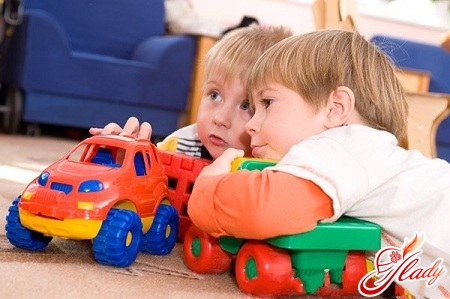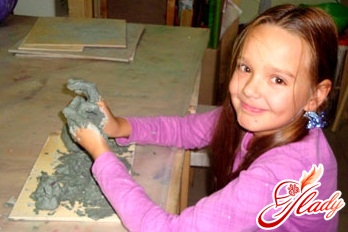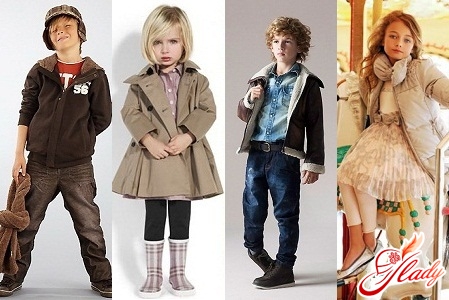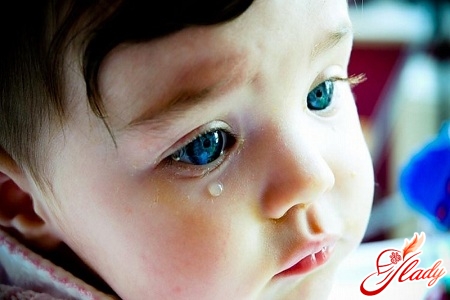 "After all, it does not happen in the world to be lostchildren! "In the eponymous cartoon mammoth he found his mother. And if you remember, my mother was a little elephant. Unfortunately, people also lose their children ... Today, the problem of orphanhood in Russia and the CIS countries is very acute. But, to great happiness, recently more and more families have decided on such a responsible step as the adoption of the baby. Of course, this act is worthy of great respect. But along with the adoption of such a serious decision, a lot of questions arise in potential adoptive parents: how will everything go, will they find exactly "their" baby, how will the further relations develop? In the event that the family has native children, the situation becomes even more complicated. No - no, of course, we do not dissuade you from the adoption of the baby in any way. But in order to reduce the possible occurrence of problems to a minimum, it is worth carefully preparing beforehand. Within the framework of this article, we will consider such problems as the choice of the baby, the peculiarities of the relationship between the adoptive and the blooded children, and some others.
"After all, it does not happen in the world to be lostchildren! "In the eponymous cartoon mammoth he found his mother. And if you remember, my mother was a little elephant. Unfortunately, people also lose their children ... Today, the problem of orphanhood in Russia and the CIS countries is very acute. But, to great happiness, recently more and more families have decided on such a responsible step as the adoption of the baby. Of course, this act is worthy of great respect. But along with the adoption of such a serious decision, a lot of questions arise in potential adoptive parents: how will everything go, will they find exactly "their" baby, how will the further relations develop? In the event that the family has native children, the situation becomes even more complicated. No - no, of course, we do not dissuade you from the adoption of the baby in any way. But in order to reduce the possible occurrence of problems to a minimum, it is worth carefully preparing beforehand. Within the framework of this article, we will consider such problems as the choice of the baby, the peculiarities of the relationship between the adoptive and the blooded children, and some others.
Hello, Mom and Dad!
Family psychologists say that the most difficult- this is the choice of the baby. Of course, the question of how to choose a foster child sounds very cynical, because a kid is a little man, not a bucket of strawberries in the market. But, nevertheless, it is necessary to pass this stage to all foster parents, no matter how hard it was. Very often parents try not to think about it, believing that during their first visit to the orphanage, they all "will tell their heart". So it is so, but remember that you do not have time to cross the threshold of the orphanage, how do you look with hope on the eyes of dozens of kids. And in their glance only one question will be read: "Are you my mom and dad? Are you following me? "And in this situation it's easy to get lost. Of course, you will hardly be able to avoid this, but you can narrow down the search, if you prepare in advance. It is necessary to immediately determine the basic requirements - the sex of the child, his age, the main features of appearance, temperament, health. This question must be approached very carefully, because a child is not a toy, and you have to live with it for the rest of your life. And it depends on you, whether this life will be happy.
Age of the baby
In most cases, potential parentsprefer to take a younger child into the family. They explain this decision by the fact that the kid does not remember his relatives and previous life. Yes, and stay in the orphanage did not have time to affect the character of the crumbs. Yes, and another important fact - taking in the baby's family, parents can go through all the stages of growing up, which for many is also a decisive factor. And the process of adaptation should not be forgotten. The younger the child, the more painless it will be. If you choose a child under three years old, remember that your new family will enjoy all the privileges that the law provides - leave to take care of a child, cash benefits. But do not deprive the chance to find a family and children of an older age. If you decide to take a child older, you need to consider some factors. First, a kindergarten or a school. If a child by age is required to attend a children's educational institution, be sure to prioritize this issue with educators. Secondly, pay attention to the children of relatives, friends and acquaintances. This will bring a double benefit. You can observe the behavior of children of different age groups and make a decision. Well, get to know the prospective friends of your future son or daughter. In addition, you will gain some communication skills with children, which will also play into your hands in the future. Also, psychologists advise paying special attention to the age of the baby to those parents who have lost their own child. Of course, the loss of a child is the worst thing that can happen in the life of any person. But categorically it is not recommended to take into the family of the same-sex child the age at which the native child died. Otherwise, the adoptive parents at the subconscious level will present to the child inflated demands. And, of course, the kid just physically can not answer them. And all will be unhappy - the child and the baby. Therefore it is much more reasonable to choose a person, not a "substitute".
Appearance, temperament, health
Let us pass to the next, no less important question -appearance of the child. Of course, do not drink water from your face. However, all parents have a completely natural desire to have a foster child at least a little like them. However, it is not worthwhile to erect this in a cult - it will be very short time, and the similarity will necessarily appear. Mimicry, the manner of communication, a smile, gesticulation - all this will become common as a result of your constant communication. In addition to appearance, it is worth paying attention to such an aspect as the temperament of the child. This point is often overlooked by parents. And in vain - after all, if the parents are extremely calm people, coping with the crumb-heza will be much more difficult than with the phlegmatic. Well, in the event that parents are energetic people, a baby sanguine person will also not be the best option. In order to learn the nature of the child, you need very little. Just ask the teachers how the baby behaves in the child's home. Believe me, they will be happy to tell you about all the features of your baby's character. Yes, and your own observations during the visit to the orphanage will give you answers to many interesting questions. Also you can not lose sight of the health of the baby. With adoption, this question should be clarified first. Be sure to carefully read all the entries on the child's medical record. If you have any doubts about the correctness of all the conclusions, you have every right to conduct an independent medical examination, in any medical institution you choose. This possibility is provided by Russian legislation. And remember that no matter how good an orphanage is, it can not replace a loving family. Extensive practice shows that very many diagnoses dissolve like a haze, it costs a child to get into a loving family. 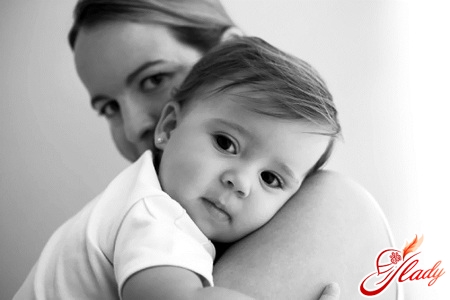
Legal nuances
So, you found your "own" baby and made a choice. The next important step that you need to do is to make sure that the child's biological parents will not insist on returning the crumbs to the family. If from the biological point of view the child is not an orphan, you need to obtain from his parents a notarized consent to the adoption of the child. After this, they will be able to return the child only in a judicial order. And the court, as a rule, in most cases becomes the side of foster parents. And in the event that your prospective toddler's mother is still under age, the task becomes more complicated. You must enlist the notarial consent not only of the mother, but of her parents - the grandparents of the baby. Do not rely on the fact that the parents of the child are deprived of parental rights - these rights can be restored in court. In the event that you take a family of a child who has reached the age of ten, remember that he has the right to choose. In order to take this child, you must obtain his own consent. And only if all these conditions are met, the child will be able to move to a new family. Adoption automatically gives the foster child the same rights as a child born by father and mother. The child automatically receives all the property and non-property rights and obligations. Like any blood relative. For example, if the adoptive parents die, the heir of the first stage will be the adopted child along with the blood children. However, his duties are the same - if the parents lose their efficiency, an adult child is obliged to take care and provide the parents with material support. And pay attention - from the moment of adoption the child is automatically completely freed from any obligations towards his biological parents and any other blood relatives. The secret of adoption is under the protection of the law - any person who divulges it automatically falls under criminal prosecution. And it's no accident - this information can destroy the happiness of the family and deprive the peace and peace of the child. However, the adoptive parents should remember that adoption at any time can be canceled. And this is done in court. Although, of course, no one will take your child away from you for no other reason - there must be very good reasons for this. For example, such a cause may be the immoral way of life of adoptive parents, or cruel treatment of a child. But, we hope that our readers will never touch.
If the family already has children
So, the baby is chosen. If the family already has native children, parents must necessarily prepare them properly for the emergence of a new member of the family. Even for adult people, the appearance of a foster child is a serious test. And what to say in this situation about children? Let's look at several ways that can make this process the most smooth and painless for both parties.
- Prepare your baby in advance
Very often adoptive parents make the sameThe same error - they conduct all formal procedures, telling nothing to the child. And just put it before the fact, bringing a new brother or sister home. Try to put yourself in the child's place. You lived, you were, you did not really bother about anything. The object of adoring Mom, Dad, Grandmothers, Grandfathers (continue on by yourself), the center of a small universe within its family. And then mom and dad bring some stranger with whom we have to divide not only toys and sweets, but also - what is most terrible - the love and attention of mom and dad. And how to live on? Presented? That's the same! And note that you looked at the situation through the prism of the thinking of an adult. And the child is even heavier, as it is difficult for him to understand your motivation. And do not hope that your child is already an adult enough and will understand everything, even if he is in adolescence. To the end to understand the actions of adults he still will not work. Therefore, dedicate your child to your plans in advance. Be sure to talk with him in such a way that the child feels important. If the child realizes that you respect his opinion and choice, he will certainly be more sympathetic to your decision. Most often, children very calmly perceive such information, as long as they do not see this adopted child, he is some kind of ephemeral. And by the time the baby moves to you, your own baby will put up with this thought. Many psychologists advise taking with them to the home of babies of native children. On the one hand, this is really so - so the child will feel his involvement in what is happening. Yes, and a sense of responsibility for a younger brother or sister, most likely, will appear. However, this can be done only if the child is at least 5 to 7 years older than the estimated age of the adopted child. Otherwise, you risk putting a rather strong psychological trauma on those children who will remain in the child's home. After all, they will have to regularly monitor your child for a certain time, who comes and goes with his mother and father. Of course, you can ignore this moment, but you remember that other people's children do not exist? Do not hurt the already unhappy children.
- The right to property
Most often, conflicts between foster andchildren, if they flare up, then on a completely material basis - a room, toys, clothes. Therefore, before you take in a child's family, carefully consider all these issues. The first is a room for a child. Do you have the opportunity to give the child an individual child? Great. But it turns out, alas, not always. So, your own child will soon have a neighbor or neighbor. Therefore, always discuss this issue with your child in advance. And re-build a room with the son or daughter. And in the first place you will have to take into account the interests of your child. Choose the right furniture, if necessary - make repairs. If the size of the room allows, it is superfluous to at least visually zonate the room, for example - a rack. In this way, you can give both children a sense of personal space. Be sure to get your adoptive child your own toys, books and stationery. In the event that the adopted child will use the things of your own baby, there is a high probability of conflicts between the children. Therefore, how to prepare for the arrival of a new family member and stock up on everything you need.
Your baby at home
Finally, your adopted baby at home! In order for the adaptation process to pass as smoothly and painlessly as possible, the parents must take the necessary measures. One can not overlook the nuance that the child spent most of his life observing a very strict regime. Therefore, it is impossible to change it cardinally and immediately, since this can have a very negative effect on the state of the nervous system. Taking the child home, be sure to find out from the caretakers which day regime was in the child's home. By the way, it will be superfluous to ask, in which direction your child is most often knocked down. This will help you organize the baby's day in the first time at home. After all, for the child there is nothing more important than constancy. Do not forget about the baby's diet. Be sure to find out exactly what your little one used to eat. Do not immediately radically change the menu of the child - do not insist, if he at first will refuse from those or other products. Let them even be very useful for the health of the baby. A little time will pass and the baby will get used to the fact that meat, milk, fruits and vegetables will be present in his menu. And will eat them with pleasure. But in the case of delicacies for the child, be consistent and reasonable. Even if the kid is delighted with blueberry jam or ice cream, do not allow the child to eat up to the heap. This can result in allergic reactions or digestive disorders, because the baby is not used to such products. Consistency and moderation are your main motto! The next point on which to focus attention is new toys for the child. Of course, the desire to please the baby is quite natural. However, be prepared for the fact that a huge number of new toys can not only not please the crumb, but even frighten it. Issue new toys little by little - no more than one per day. By the way, ask for some favorite toy of the baby before leaving the orphanage. This will also greatly facilitate the child's addiction to the new home. Too strong emotional impressions, even positive ones, are also not always useful for the child. And this must also be taken into account. Of course, all your relatives and friends will want to come to visit to get acquainted with the child. But do not hurry. Tactfully explain to the guests that the visit should be delayed for at least a couple of weeks. During this time the child adapts and gets used to a new family. By the way, about the guests. In the event that in addition to the foster child in the family have blood children, do not forget about them. Put yourself in the place of the child. A new member of the family has arrived - the guests come, the adopted child gets into the center of everyone's attention, gifts are given to him. Agree, it's not so pleasant. Therefore, ask the guests to bring something for both kids. Or, independently, buy small gifts and hand them out to the guests in the hallway unnoticed. Be careful with household chemicals and various perfumes. Try to avoid any sharp smells in the house. The baby's organism can react to them not by the best age. The same applies to pets - in advance, find out if the child has allergies to dog or cat hair. And be sure to be near during the first acquaintance of a child with a pet.
Educational process
Of course, the task of the adoptive parent isnot only care for the child's physical well-being, but also his upbringing. However, remember that educational work with adopted children has its own characteristics. Do not immediately overload the child with a lot of cognitive information. In order for you to establish a trusting relationship, you need to win parental authority. And most importantly, what is needed to do this is to let the child feel in a new family protected, loved and desired. And an excessive amount of novelty will only slow down this process. And this applies not only to toddlers, but also to older children. It is not necessary from the first days zealously undertake the cultural enlightenment of the child. All excursions should be postponed to a later time, when the child is fully accustomed to the new house. Many adoptive parents mistakenly believe that the child will begin to show emotional attachment to them from the very first day. However, most often this does not happen so quickly. But be prepared for the child to react very painfully to your absence, even very briefly. Did you go to the store? It is very likely that when you come home, you will find the crumbs in tears. Did you go to the shower? Be careful when you open the door - most likely, the baby will wait for you under it. Very many adults like this phenomenon annoying. But this is not an empty whim of the child. He just found Mom and Dad. And it is only natural that he is very worried about this. Therefore, treat the situation with understanding, so as not to spoil the relationship with the child at the very beginning. If possible, take the child with you. And if for some reason this does not work out - be sure to tell the baby about the upcoming separation, reassure your love and promise that you will definitely return soon. Family psychologists advise to spend with adopted children as much time as possible, at least during the period of adaptation. And it does not matter at all whether you will read a book together or prepare dinner. The main thing is for the child to feel that you need and are interesting to him. It is at these moments that the emotional contact of the child and parents is so important for the further educational process. Very often the child begins to talk about negative episodes from his past life. As a rule, parents interrupt this story, trying to lead the conversation aside. But it's better not to do it - let the kid talk and talk about everything that worries him. Psychologists say that it is in this way that a child gets rid of negative life experiences. And only after fully speaking out, the child can live a normal full life. By the way, very often, for the first time adopted children can play various games that can be very cruel. And most often the child presents himself in these games as the injured party. This is also a kind of way to give a way out of its energy. Do not expect that the child can say goodbye to his past for one day. 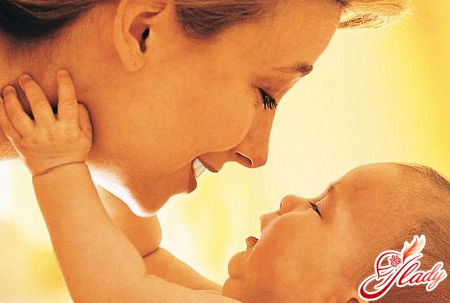
Let's describe the main problems in the behavior of the child and ways to deal with them:
- Obscene expressions. Unfortunately, often children come from children who are not very well-off families. More precisely, from very unfortunate. And it would be foolish to hope that all this situation will pass by the child. And many foster families face a situation where barely scraping crumbs of a stock of unprintable expressions are greater than printed words. Of course, the situation is extremely unpleasant. But not the worst, believe me. Of course, it is necessary to fight this habit. But do not do it too harshly. Do not punish the child for abusive language. And make comments very gently and tactfully. In the event that you yourself are not lovers of inserting "red words", the child gradually stop using them.
- Actions are "spite". Sometimes foster parents come to despair - the child constantly commits the same misconduct. With him, "explanatory work" is carried out, the child realizes his guilt and gives oaths to cease doing so. But after a while he again and again repeats the same thing. Why does this happen? Is the child pursuing the goal of making you angry? Partly yes. The child is really trying to piss you off. But not in order to just shabby your nerves! The only thing he achieves is the certainty that he will be loved in any way, regardless of his actions. And the earlier you give him this confidence, the sooner all these "strength checks" will end. And do not be angry with the child - most often he does it all inadvertently, on a subconscious level. If you continue to be angry at the child, remember that once he was already betrayed. And he is desperately afraid that this will happen again.
- Poor social adaptation of the child. Often foster families turn to a psychologist with a complaint that a child can not adapt in a children's collective - in a kindergarten, a school, and on a playground, after all. Parents make all possible efforts, but the child does not come into contact with other children in the team. This can manifest itself in various ways. Some children are locked in themselves, shun all, prefer to spend time alone. They have little interest in common games and are trying their best to evade them. Other children, on the other hand, behave very actively. But this activity is not directed to a peaceful course - the child shows extreme aggression towards the children around him.
In principle, and the one and the other model of behaviordictated by one motive - it all depends on the temperament of the child and the characteristics of his character. And the reason is quite simple. Your child spent a long time in the children's collective - the child's home. And no matter how good this child's home was, your baby still had to compete with the rest of the children. And this in any case will be postponed to the subconscious of the child. Therefore, your time will be the main ally in this situation, however paradoxical it may sound. If your relationship develops correctly, the problem will gradually disappear by itself. The child will understand that the children around him are not rivals, but friends. However, such a wait-and-see tactic is suitable for phlegmatic children who try to avoid children's society. In the same case, if a child shows aggression, it is much more reasonable to seek help from a child psychologist. A specialist will really appreciate the psychological state of the child and will choose a correctional program that is ideally suited for him. As a rule, it is possible to cope with a similar problem quickly enough. The main thing is not to let her go. And remember that in any situation, no matter what happens, the most important thing that a child needs is your love. Love is capable of such metamorphoses, which neither teachers nor psychologists can do. Dare - and you will succeed! The main thing in this business is a sincere desire. We advise you to read:




